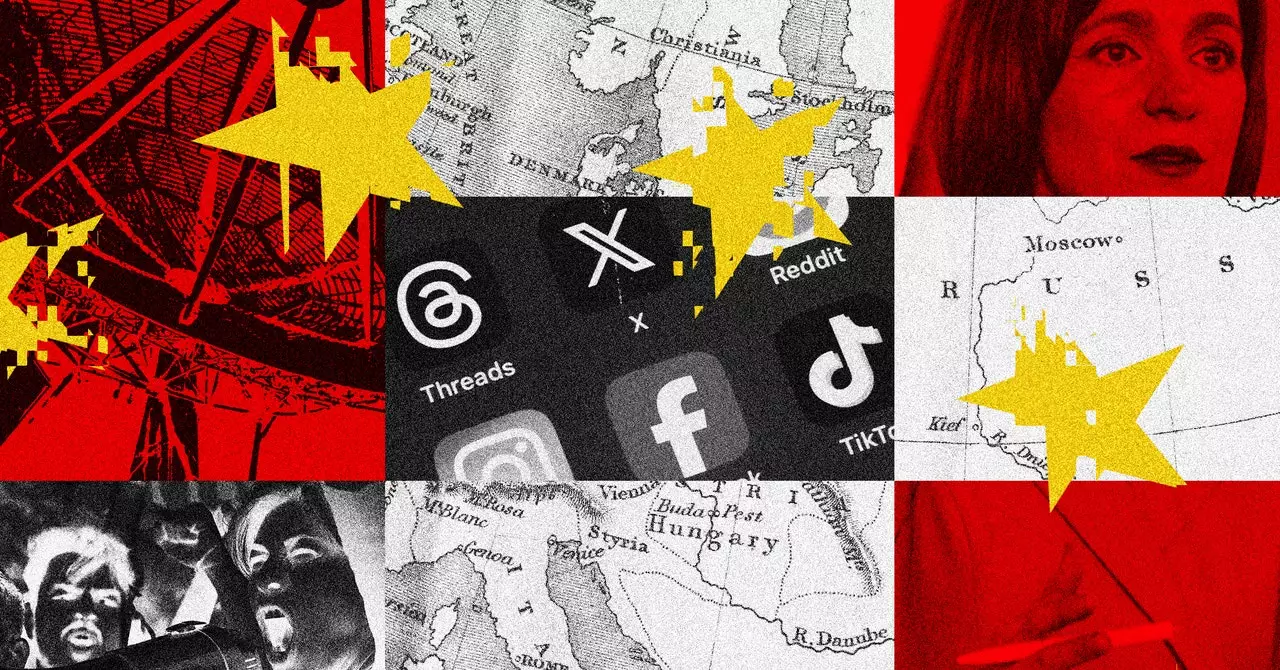The recent political turmoil in Moldova took an unusual turn when a TikTok video featuring Brian Baumgartner, known for his role in *The Office*, called for the ousting of Maia Sandu, the pro-European president of Moldova. This perplexing endorsement, delivered in shaky Russian, signals deeper issues within the country, underscored by its historical struggles with external influence. With celebrities wielding substantial social media power, this incident raises questions about their roles in sensitive political contexts.
What initially appears as a humorous meme can morph into a serious political statement when leveraged by foreign powers. Researchers indicate that Baumgartner’s video was part of a larger pro-Kremlin scheme designed to distort public perception in Moldova. Utilized through Cameo—a platform that enables personalized video messages—the disinformation campaign underscores the potentially damaging intersection of celebrity culture and political manipulation. The normalization of such practices could lead to grave consequences in various vulnerable democracies worldwide.
Moldova, a small nation nestled between Europe and Ukraine, has been a continuous target of Russian interference. The challenging geopolitical landscape has made it an experimental ground for tactics aimed at destabilizing governments and manipulating public sentiment. With the recent intention to hold a presidential vote and a referendum on European Union membership, this tiny nation has become embroiled in giant global confrontations.
The disinformation campaigns here are intricately crafted, with tactics that include the malicious use of bots and fake accounts amplifying divisive content. Ordinary citizens report being inundated with misleading political ads from pages with Vietnamese names—an oddity that illustrates the globalization of influence operations. Such tactics are not confined to Moldova but expose the fragility of democratic values in many nations.
As noted by Ana Revenco, Moldova’s former interior minister, the ongoing struggles against online disinformation provide a graphic warning for global societies. The sophistication and scale of misinformation echo a familiar pattern: platforms can be exploited for nefarious purposes anywhere they operate. The American social media giants, once viewed as instruments of democracy, now seem complicit, willingly or unknowingly, in orchestrating chaos under the guise of free expression.
With increasing aggression from accounts tied to the Kremlin, Revenco asserts that these long-dormant accounts are being activated to influence public opinion ahead of the crucial elections. The situation highlights the critical need for transparency and accountability when using social media for political discourse.
The ongoing crisis in Moldova is a rallying point for international scrutiny on the use of social media tools in political warfare. As misinformation tactics continue to evolve, the global community must remain vigilant in understanding the implications of such campaigns. Levels of manipulation demonstrated in Moldova could easily transition to other nations, demonstrating a clear need for preparedness against the spread of disinformation. A united front is essential as societies confront these challenges, underscoring the urgency for stricter regulations and awareness in safeguarding democracy.

